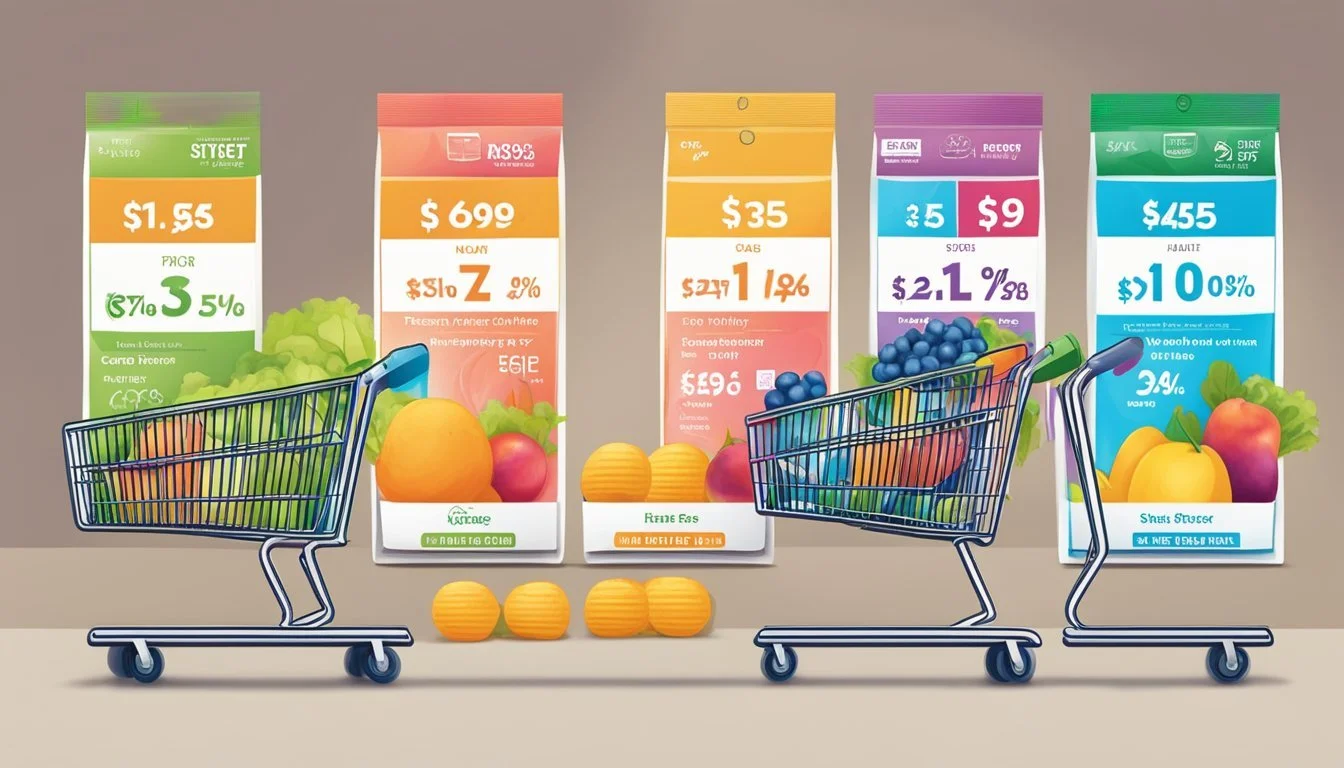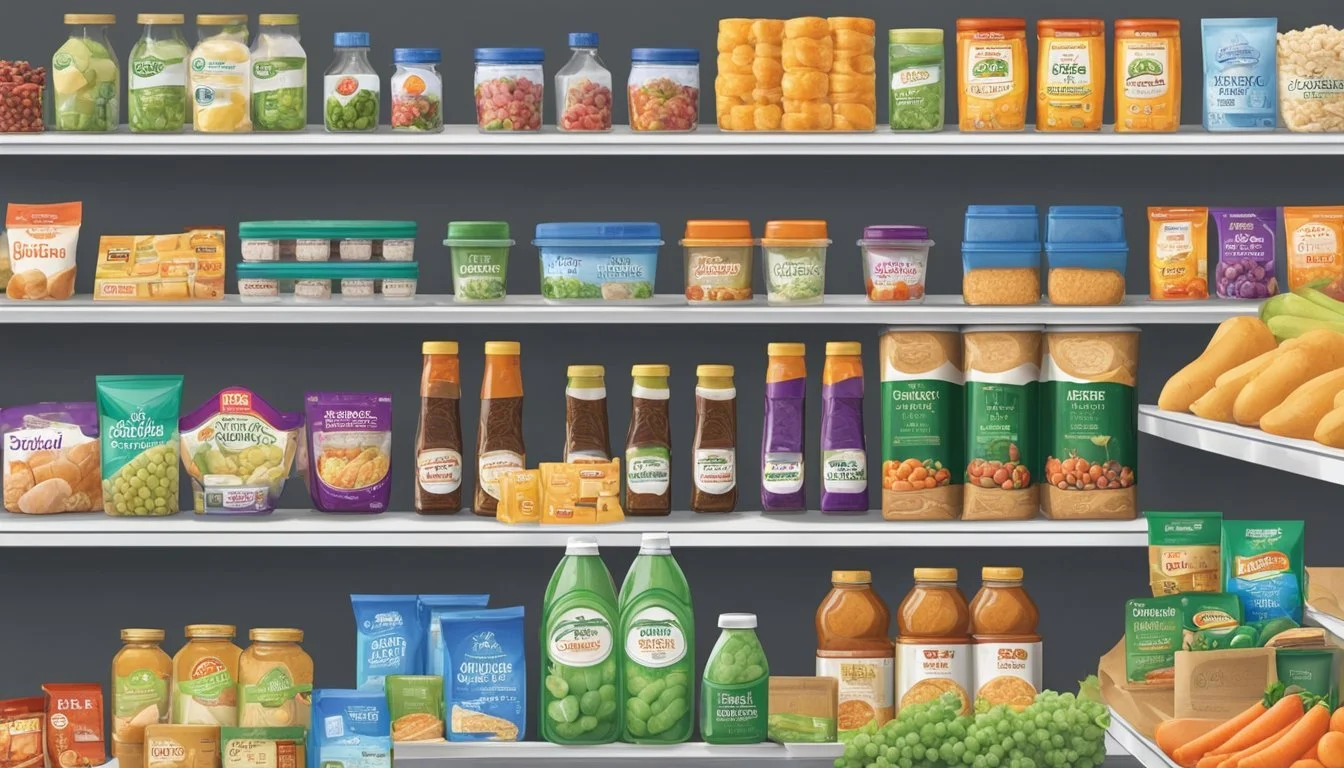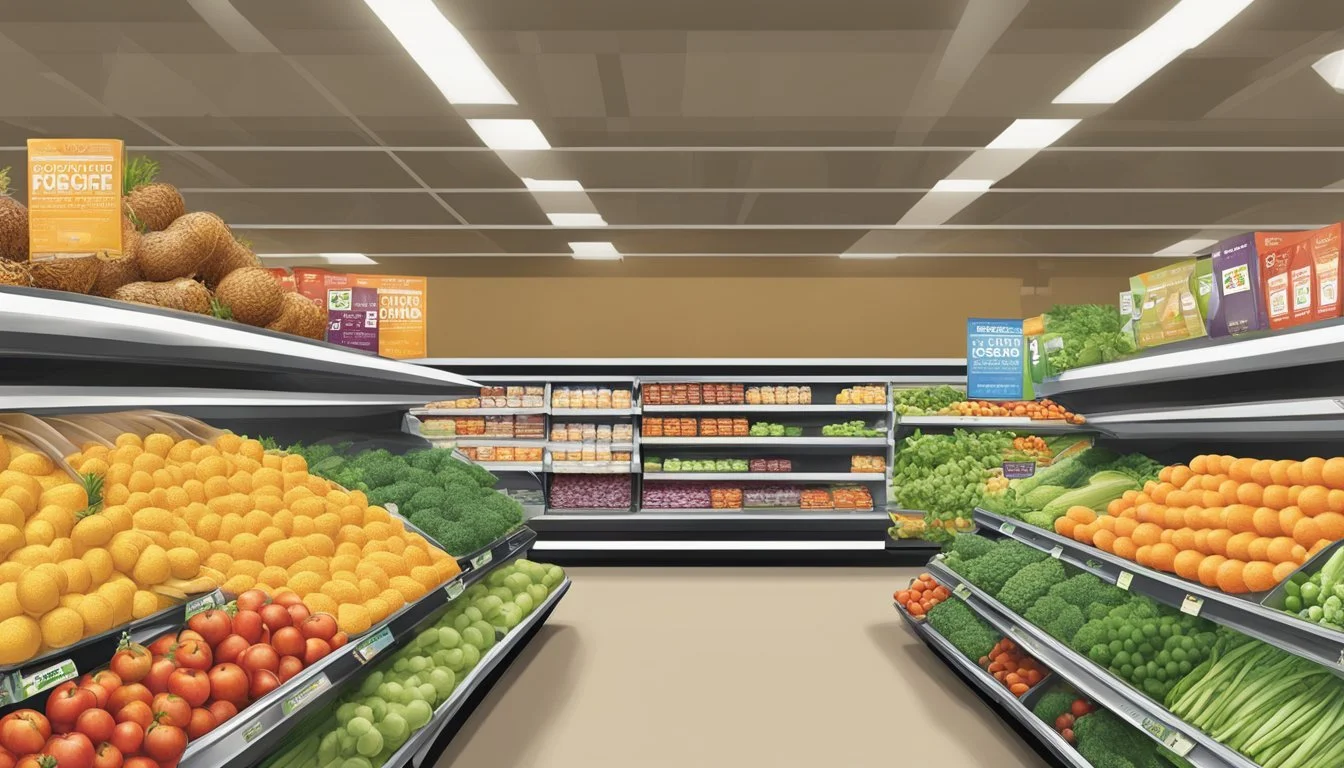Is Harris Teeter Cheaper Than Stater Bros. Markets?
A Price Comparison of Two Popular Grocery Chains
Harris Teeter and Stater Bros. Markets are two popular grocery chains catering to different regions and consumer segments. While both offer a range of products, their pricing strategies and market positioning differ significantly.
Harris Teeter generally has higher prices compared to Stater Bros. Markets. As a subsidiary of Kroger, Harris Teeter positions itself as a premium supermarket, focusing on quality and customer service. This approach often results in slightly elevated prices for many items.
Stater Bros. Markets, on the other hand, emphasizes value and competitive pricing. The chain prioritizes affordability, making it an attractive option for budget-conscious shoppers. Despite the price difference, both stores maintain a loyal customer base by offering distinct shopping experiences tailored to their target demographics.
Company Overviews
Harris Teeter and Stater Bros. Markets are prominent grocery store chains with distinct histories and regional presences. Both have experienced significant growth and hold strong market positions in their respective areas of operation.
History of Harris Teeter
Harris Teeter's roots trace back to 1936 when W.T. Harris opened his first grocery store in Charlotte, North Carolina. In 1960, Harris merged with Teeter's Food Mart, forming Harris Teeter Supermarkets. The company expanded rapidly across the southeastern United States.
In 1969, Harris Teeter became a subsidiary of Ruddick Corporation. The chain continued to grow, focusing on customer service and high-quality products. In 2013, The Kroger Company acquired Harris Teeter, further strengthening its market presence.
Today, Harris Teeter operates over 250 stores across seven states, primarily in the East Coast region. The chain is known for its fresh produce, extensive wine selection, and in-store pharmacies.
History of Stater Bros. Markets
Stater Bros. Markets was founded in 1936 by twin brothers Cleo and Leo Stater in Yucaipa, California. The company started as a small grocery store and steadily expanded throughout Southern California.
In 1968, Stater Bros. went public, enabling further growth. The company focused on providing quality products at competitive prices, earning a loyal customer base. In 1986, Jack H. Brown became CEO, leading the company through significant expansion.
Stater Bros. has remained committed to its Southern California roots, operating over 170 supermarkets in the region. The company is known for its meat departments, customer service, and community involvement.
Market Position and Growth
Harris Teeter holds a strong position in the East Coast grocery market, particularly in North Carolina and Virginia. The chain has experienced steady growth, expanding into new territories and offering innovative services like online ordering and express lane checkout.
Stater Bros. Markets maintains a dominant presence in Southern California's Inland Empire region. The company has focused on strategic growth within its core market rather than expanding to new states.
Both chains face competition from larger national retailers but differentiate themselves through customer service and regional loyalty. Harris Teeter leverages its association with Kroger for purchasing power, while Stater Bros. emphasizes its local roots and community connections.
Pricing Strategies
Harris Teeter and Stater Bros. Markets employ different pricing strategies to attract customers and remain competitive in the grocery market. These strategies impact overall affordability and value for shoppers.
Comparing Price Points
Harris Teeter positions itself as a premium grocery chain, often with slightly higher regular prices than some competitors. The store focuses on quality products and customer service to justify its pricing. Stater Bros. Markets, in contrast, emphasizes everyday low prices as a core part of its business model.
Stater Bros. typically offers lower prices on staple items like milk, bread, and eggs. For example, a gallon of milk might cost $3.49 at Harris Teeter but only $2.99 at Stater Bros. Markets. Produce and meat prices can also be more budget-friendly at Stater Bros.
Harris Teeter may have higher regular prices, but it runs frequent sales and promotions. These deals can sometimes bring prices below those at Stater Bros. for specific items.
Loyalty and Discount Programs
Harris Teeter's VIC (Very Important Customer) program is a cornerstone of its pricing strategy. VIC cardholders access exclusive discounts, digital coupons, and personalized offers. The program can lead to significant savings for regular shoppers.
Key VIC benefits:
Weekly specials
Fuel points
E-VIC emails with personalized deals
Stater Bros. Markets doesn't offer a traditional loyalty program. Instead, it focuses on consistent low pricing for all customers. The chain does provide digital coupons through its website and mobile app.
Both stores accept manufacturer coupons, allowing savvy shoppers to stack discounts. Harris Teeter occasionally offers double coupon promotions, potentially leading to deeper savings on specific items.
Product Selection and Quality
Harris Teeter and Stater Bros. Markets both offer extensive product selections, but differences emerge in their focus areas and quality standards. These distinctions impact customer choices and shopping experiences at each retailer.
Produce and Fresh Food
Harris Teeter emphasizes fresh, high-quality produce. Their stores feature expansive produce departments with a wide variety of fruits and vegetables, including organic options. Many locations offer locally sourced items, supporting regional farmers.
Stater Bros. Markets also provides a solid produce selection. While their organic offerings may be more limited, they focus on competitive pricing for conventional produce. Both chains prioritize freshness, but Harris Teeter tends to have a slight edge in variety and presentation.
Meat and Poultry Departments
Harris Teeter is known for its quality meat department. They offer USDA Choice beef and a range of poultry options. Their butchers provide custom cuts and special orders upon request.
Stater Bros. Markets has a strong reputation for its meat department as well. They pride themselves on offering high-quality cuts at competitive prices. Both chains maintain strict quality standards, but Harris Teeter may have a broader selection of premium and specialty meats.
Private Label and Store Brands
Harris Teeter's private label products span various categories, from pantry staples to prepared foods. Their store brands often emphasize quality ingredients and unique flavors.
Stater Bros. Markets also offers private label products, focusing on value without compromising quality. Their store brands cover essential grocery items and some specialty products.
Both chains use private labels to provide cost-effective alternatives to national brands. Harris Teeter's offerings tend to be more extensive, with a focus on premium and organic options.
Shopping Experience
The shopping experience at Harris Teeter and Stater Bros. Markets differs in several key aspects. Both supermarkets aim to provide a pleasant environment for customers, but their approaches vary in terms of store layout, customer service, and accessibility.
Store Cleanliness and Layout
Harris Teeter stores are known for their clean and well-organized layouts. The aisles are typically wide and clearly labeled, making navigation easy for shoppers. Products are neatly arranged on shelves, and the store's design often includes upscale touches like wood flooring and ambient lighting.
Stater Bros. Markets also maintains clean stores but with a more traditional supermarket layout. Their stores focus on functionality, with clearly marked sections and straightforward product placement. The layout is designed for efficiency, allowing customers to quickly find what they need.
Both chains prioritize cleanliness, with regular cleaning schedules and prompt attention to spills or messes.
Customer Service and Support
Harris Teeter prides itself on exceptional customer service. Employees are trained to be knowledgeable about products and attentive to customer needs. The stores often have dedicated customer service desks to handle inquiries, returns, and special requests.
Stater Bros. Markets emphasizes friendly, personalized service. Staff members are typically locals who build relationships with regular customers. The company culture encourages employees to go above and beyond to assist shoppers.
Both chains offer assistance with bagging groceries and carrying items to cars when needed.
Convenience and Accessibility
Harris Teeter stores are often located in suburban and urban areas, catering to a mix of demographics. Many locations offer extended hours, with some stores open 24/7. The chain provides online shopping with pickup and delivery options in many areas.
Stater Bros. Markets focuses on serving local communities, with stores primarily in Southern California. Their locations are chosen for convenience, often in neighborhood shopping centers. Store hours are typically standard business hours, closing earlier than some competitors.
Both chains offer loyalty programs:
Harris Teeter: VIC (Very Important Customer) card
Stater Bros.: Digital coupons and weekly ads
Parking is generally ample at both chains, though Harris Teeter may have more limited options in urban locations.
Geographic Reach and Local Products
Harris Teeter and Stater Bros. Markets serve distinct regions, catering to local tastes and supporting regional producers. Their store locations and commitment to local products reflect their deep roots in their respective communities.
Store Locations
Harris Teeter operates primarily on the East Coast, with a strong presence in Virginia, Maryland, North Carolina, and Georgia. The chain has over 250 stores across seven states and the District of Columbia. Its headquarters is in Matthews, North Carolina, near Charlotte. Stater Bros. Markets, in contrast, focuses exclusively on Southern California. The company has about 170 stores, all within this region. Its headquarters is in San Bernardino, California.
Support for Local Producers
Both chains prioritize local sourcing, but their approaches differ due to their geographic spread. Harris Teeter's "HT Local" program features products from East Coast farmers and artisans. The chain offers items like Charlottesville, Virginia honey and Mooresville, North Carolina dairy products. Stater Bros. Markets emphasizes California-grown produce and state-made goods. The company partners with local farmers to provide fresh, in-season fruits and vegetables year-round. This focus on regional products allows both chains to support their local economies and offer customers unique, area-specific items.
Customer Loyalty and Retention
Harris Teeter and Stater Bros. Markets both prioritize customer loyalty and retention strategies. Harris Teeter offers a VIC (Very Important Customer) program, providing personalized deals and discounts to members.
Stater Bros. Markets focuses on maintaining consistently low prices to keep customers coming back. This approach aims to build trust and loyalty through reliable value.
Both chains emphasize excellent customer service as a key retention tool. Friendly, knowledgeable staff and efficient checkout processes contribute to positive shopping experiences.
Harris Teeter's upscale store environment and diverse product range appeal to customers seeking quality and variety. This cultivates a loyal base of shoppers who appreciate the premium offerings.
Stater Bros. Markets' commitment to its low-price position helps retain budget-conscious customers. By staying true to this core value, they maintain a dedicated following in their market areas.
Customer feedback and responsiveness play crucial roles in retention for both chains. Addressing shopper concerns and adapting to changing needs helps strengthen customer relationships over time.
Competitive Analysis
Harris Teeter and Stater Bros. Markets employ distinct pricing strategies and target different market segments. Their competitive positions vary when compared to national and regional grocery chains.
Comparison with National Chains
Harris Teeter competes with major national chains like Walmart, Kroger, and Costco. While generally more expensive than Walmart, Harris Teeter offers a wider selection of premium and organic products. Kroger's prices are typically 11% to 55% lower than Harris Teeter's across most categories.
Costco and Sam's Club often beat Harris Teeter on bulk item pricing. However, Harris Teeter's smaller package sizes and more diverse product range cater to different shopper needs.
Stater Bros. Markets positions itself as a value-oriented regional chain. Its prices are generally competitive with national chains like Walmart, particularly on everyday staples and produce.
Comparison with Regional Chains
Harris Teeter's prices are generally higher than those of regional competitors like Publix and Market Basket. A price comparison showed Harris Teeter's store brand items to be 8% to 24% cheaper than Publix. However, Publix often offers better deals on specific categories through promotions.
Stater Bros. Markets competes closely with other West Coast chains like Grocery Outlet and Sprouts Farmers Market. Its prices are typically lower than specialty retailers like Whole Foods Market but may be slightly higher than extreme discounters.
Both Harris Teeter and Stater Bros. face competition from regional players like Wegmans, Meijer, and IGA. These chains often have strong local followings and tailored product offerings that challenge national and larger regional chains.
Conclusion
Harris Teeter emerges as the more economical choice compared to Stater Bros. Markets. Price comparisons reveal Harris Teeter's competitive edge across various product categories.
The data indicates Harris Teeter offers lower prices on store brand items, with savings ranging from 8% to 24%. This trend extends to multiple departments, including beverages, dairy, and frozen foods.
Methodology for this comparison involved analyzing regular pricing strategies and examining common shopping categories. Personal care products were the sole exception, where Stater Bros. Markets held a slight advantage.
Harris Teeter's extensive presence in the Southeast, with over 230 stores, contributes to its ability to maintain competitive pricing. The chain's reputation for quality and variety further enhances its value proposition.
Consumers seeking budget-friendly options may find Harris Teeter aligns better with their needs. However, individual shopping preferences and location accessibility should be considered when choosing between these two retailers.








